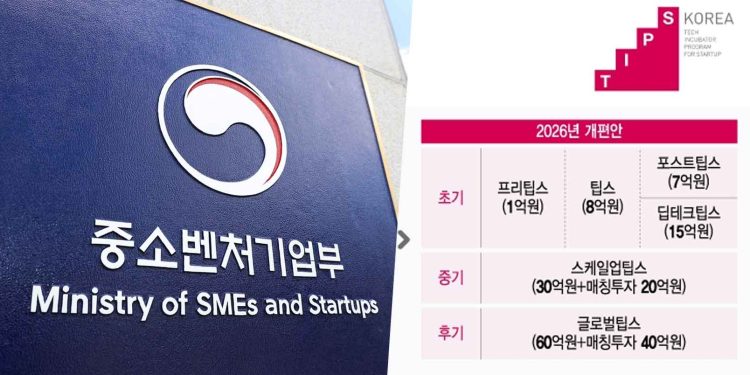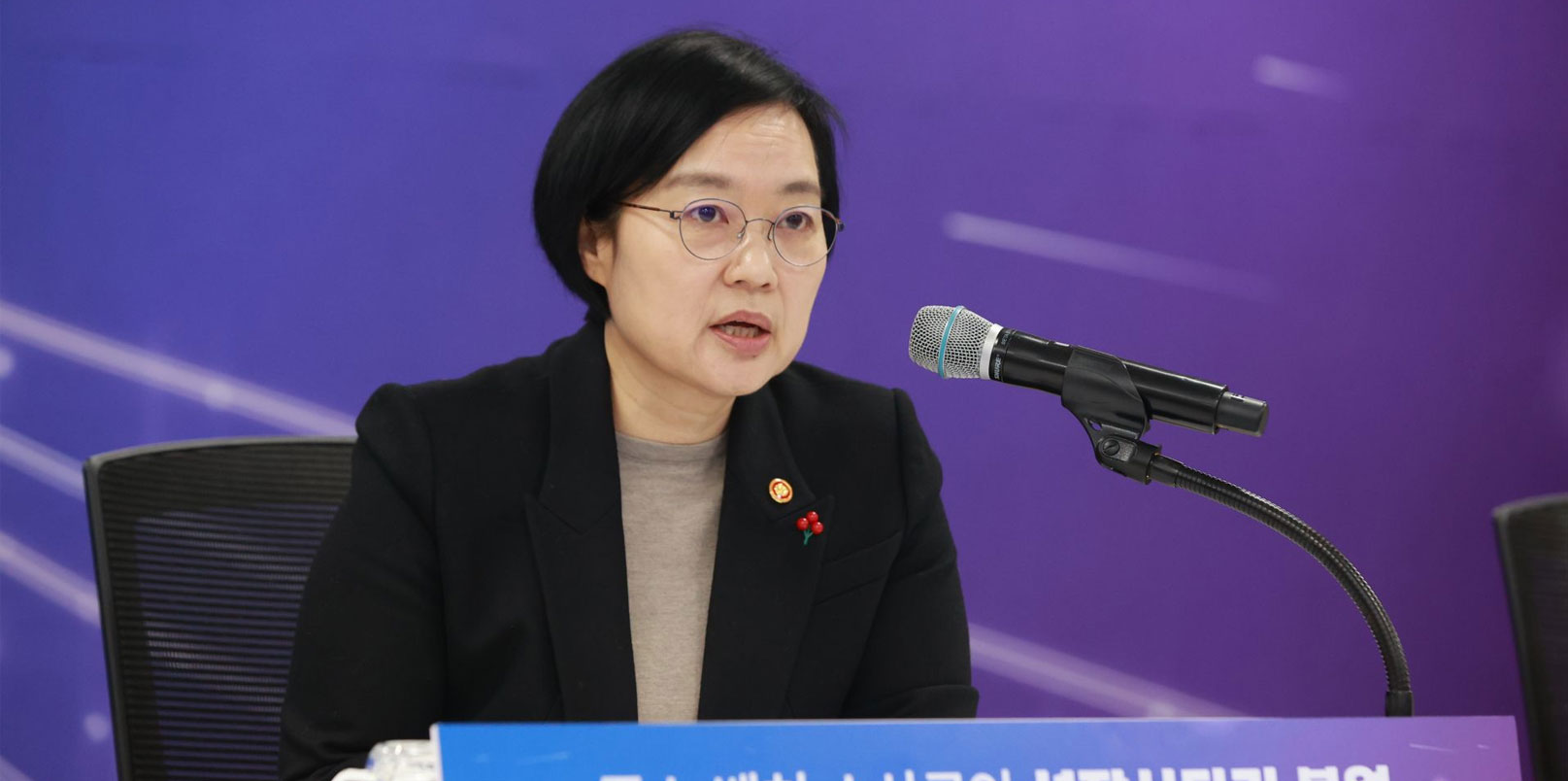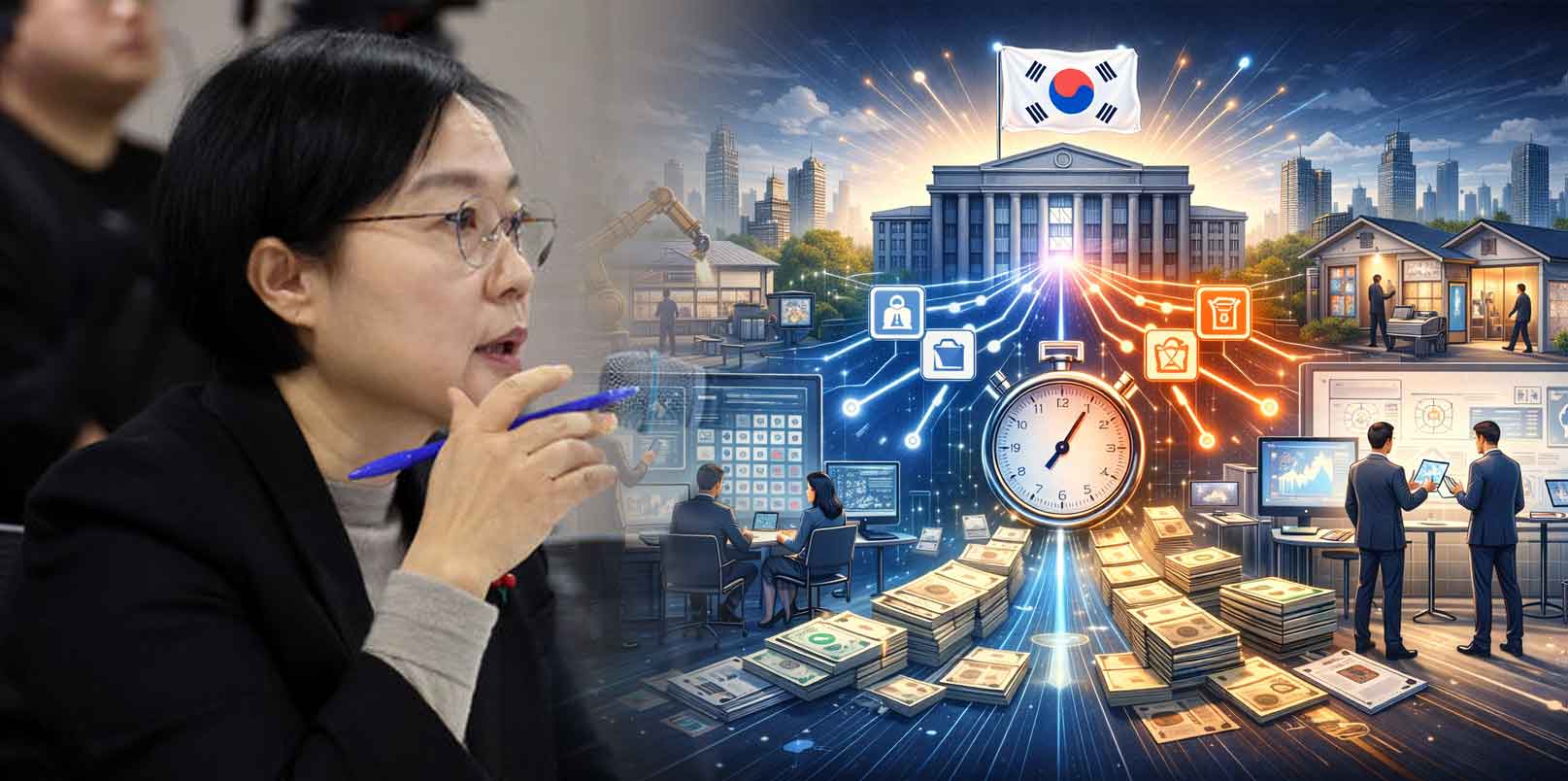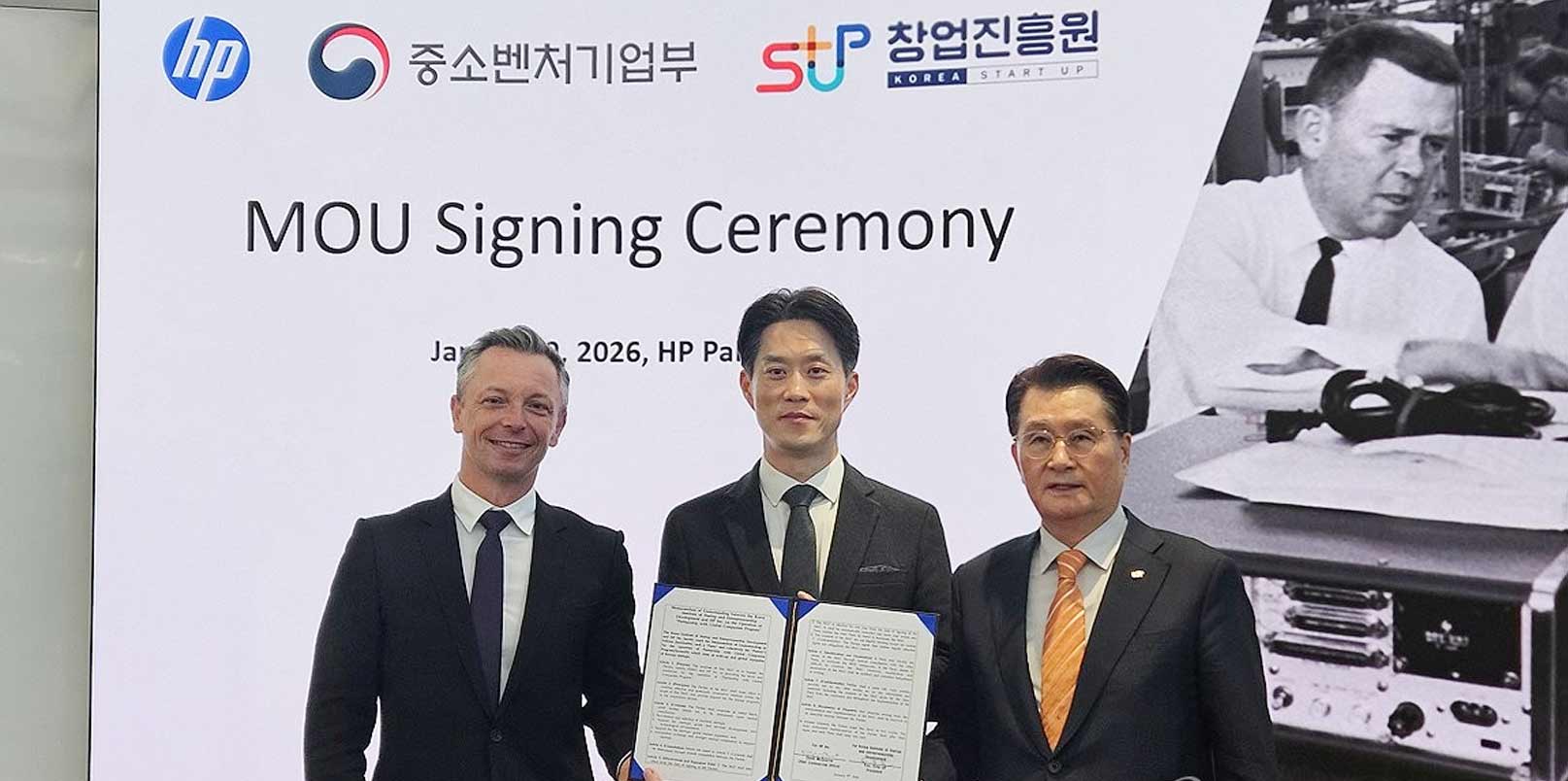Korea is taking a major step to refine how it nurtures early-stage innovation. The government’s flagship startup acceleration initiative, TIPS (Tech Incubator Program for Startups), is set for a structural overhaul that simplifies funding tracks, expands R&D grants, and places stronger focus on deep-tech and global expansion. The reform reflects Korea’s evolving strategy to help startups scale beyond domestic boundaries and build global competitiveness in AI, semiconductors, and other frontier technologies.
Government Unveils New TIPS Framework for 2026
Following the previous program expansion, the Ministry of SMEs and Startups (MSS) has announced plans to reform the TIPS program beginning next year. The revised framework will merge the existing General, Deep-Tech, and Global Tracks into a unified system centered on the startup’s growth stage rather than sector category.
Under the new model, the maximum R&D grant for selected startups will rise from KRW 500 million to KRW 800 million (≈ USD 580,000). The pre-investment requirement from TIPS operating partners will increase from KRW 100 million to KRW 200 million, though non-metropolitan startups will retain the KRW 100 million threshold to encourage regional participation.
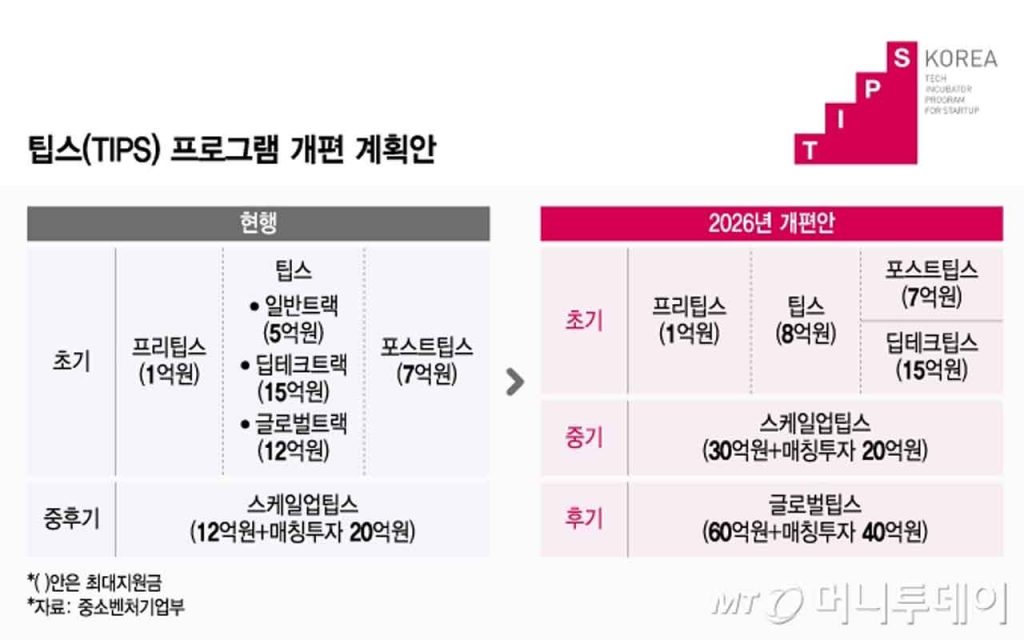
The reform aims to reduce administrative complexity and confusion for both startups and operators, streamlining the program into a single, scalable support pipeline for early innovation.
Simplification after Growing Complexity
Since its introduction in 2013, TIPS has become a cornerstone of Korea’s private investment-led startup ecosystem, linking early-stage innovators with venture capital and government-backed R&D support. Over time, the program expanded into multiple tracks — General, Deep-Tech, and Global — to serve different startup needs.
However, this diversification also increased complexity. Eligibility requirements, investment thresholds, and support levels became difficult to navigate. Industry participants and lawmakers had raised concerns that the structure created inefficiencies and unnecessary costs.
During a parliamentary review in September, Representative Jang Cheol-min of the Democratic Party noted,
“Each time a new minister takes office, another version of TIPS appears. The growing complexity invites brokers and increases administrative costs.”
More Focused, More Practical TIPS Program
Industry reaction to the MSS overhaul has been largely positive. A representative from a TIPS operating company said,
“Because the funding amount varied across tracks, startups tended to pursue only the highest-paying options. Unifying the program will reduce confusion and make the process fairer and more transparent.”
According to the ministry, the existing Deep-Tech Track will be restructured into “Deep-Tech TIPS,” providing additional R&D funding to startups that successfully complete the General Track — similar to the current Post-TIPS program that supports commercialization with KRW 700 million in follow-up capital.
An MSS official explained,
“Graduated companies can now choose Post-TIPS for commercialization or Deep-Tech TIPS for advanced R&D.”
Meanwhile, the Global Track will be phased out and replaced with an expanded Global TIPS for later-stage startups that already demonstrate overseas traction. To qualify, startups must now secure at least USD 1 million in foreign VC investment, up from USD 300,000 previously. The combined R&D and commercialization support will increase to KRW 5 billion.
A Policy Shift for Korea’s Venture Growth Agenda
The reform of the TIPS program signals a deeper strategic turn in Korea’s startup policy. It reflects the government’s aim to go beyond fragmented early-stage support and build a smoother growth pathway for startups seeking scale and global reach.
By consolidating tracks and increasing funding ceilings, the Ministry of SMEs and Startups aims to address long-standing bottlenecks that hinder follow-on investment and scale-up capacity, preventing startups collapse before maturity.
The redesigned framework is also explicitly tailored to help promising ventures in deep-tech fields — such as AI, semiconductors, robotics, and biotech — access sustained R&D funding and international capital. This shift could indirectly strengthen Korea’s broader AI transformation efforts by enabling more startups to develop specialized, sector-specific or “Vertical AI” applications.
The emphasis on new streams like Deep-Tech TIPS and Global TIPS—alongside the NEXT UNICORN Project—forms part of a broader ecosystem agenda. This agenda prioritizes private capital mobilization, cross-border growth, and venture maturity rather than just seed-stage support.
Toward a Stronger Global Footprint
Finally, the ministry plans to increase the number of startups supported under TIPS from 520 in 2025 to 620 in 2026. Concurrently, the General TIPS budget will rise by 39.9 percent to KRW 668.4 billion, while combined allocations for Scale-up and Global streams will more than double to KRW 367.1 billion.
The question now is whether Korea can convert early-stage innovation into sustained global competitiveness. If the unified TIPS model succeeds, it may establish a scalable framework that connects domestic innovation with international market readiness. And this will become an essential driver as Korea pursues its ambition to become world’s Top Four Global Venture Powerhouse.
– Stay Ahead in Korea’s Startup Scene –
Get real-time insights, funding updates, and policy shifts shaping Korea’s innovation ecosystem.
➡️ Follow KoreaTechDesk on LinkedIn, X (Twitter), Threads, Bluesky, Telegram, Facebook, and WhatsApp Channel.


